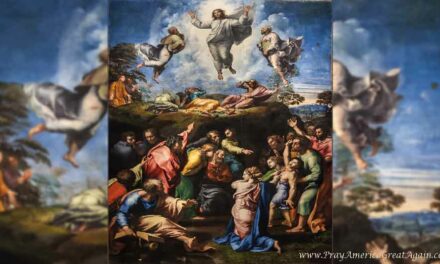Expect Great Things From God; Attempt Great Things For God
This famous quotation from William Carey also served as a motto for his Christian work. Known as the “Father of Modern Missions,” he also worked as a cobbler, schoolteacher, pastor, botanist, and editor, among other things.
“As the principal founder of the Baptist Missionary Society (BMS), he pioneered a movement that led to the formation of similar evangelical voluntary societies in Britain, Europe, and North America, and played a large part in the transformation of Christianity into a truly global religion” (Stanley, 118).
Carey served as a missionary in Serampore, Bengal, British India from 1793 until his death in 1834. Though he is best remembered for his work in Christian missions, did you know that he also:
- Founded the Serampore College (1818) which is the first college in India awarded a charter (1827) to award degrees. Serampore College remains to this day the degree-awarding body for all Protestant theological institutions in India.
- Along with his Indian pandits, translated the entire Bible into six Indian languages: Bengali, Oriya, Sanskrit, Hindi, Marathi, and Assamese. They also translated parts of the Bible into 29 other Indian languages.
- Produced grammars and dictionaries of multiple Indian languages.
- Helped translate the Hindu text of Ramayana into English
- Appointed professor of of Sanskrit, Marathi, and Bengali at Fort William College in Calcutta (just south of Serampore).
- Most influential person in outlawing the inhuman practice of sati (the forcible burning of widows on their husband’s funeral pyres).
- …and many more (!).
Christians And The Redemptive Purpose Of God
“Carey is one of the earliest examples in modern history of a missionary whose work has proved supportive, rather than destructive, of indigenous culture” (Stanley, 121). When looking back over history, time and again Christianity is the sole religion that intersects with other cultures, both sharing the Gospel with others and enabling others to share their cultural gifts to the world.*
in 1792, prior to his missionary work in Serampore, William Carey published a pamphlet containing his statement of belief on Christian missions, An Enquiry into the Obligations of Christians to Use Means for the Conversion of the Heathens. The declaration contains 5 sections, with the first being most relevant for Christians in the United States.
In this first section, Carey heralds a theological justification for missionary activity, arguing that the command of Jesus to make disciples of all the world (Matthew 28:18–20) remains binding on Christians. That is, “the missionary obligation of the church is of permanent validity and grounded in the sovereign redemptive purpose of God” (Stanley, 119).
And Jesus came and said to them, “All authority in heaven and on earth has been given to me. Go therefore and make disciples of all nations, baptizing them in the name of the Father and of the Son and of the Holy Spirit, teaching them to observe all that I have commanded you. And behold, I am with you always, to the end of the age. Matthew 18:18-20
Heathen
In Carey’s day heathen meant “unbeliever.” Though “heathen” technically means the same thing today, it is also associated with crude, uncouth, and uncivil behavior. Do we have “heathens” in the United States or what? Antifa, Media Matters, SPLC, Occupy Wall Street, FFRF, radical left of the Democrat Party, basically any Soros-funded group, all come to mind. Isn’t the Christian Church in dire need of missionaries here in the United States to carry on the redemptive purposes of God?
Means of Conversion – Holy Spirit and the Fervent And United Prayer of the People of God
Shortly after writing the missions manifesto, William Carey preached a sermon on the importance of Christian Missions, the so-called “Deathless Sermon” using the text of Isaiah 54:2-3.
Enlarge the place of your tent, and let the curtains of your habitations be stretched out; do not hold back; lengthen your cords and strengthen your stakes. For you will spread abroad to the right and to the left, and your offspring will possess the nations and will people the desolate cities. Isaiah 54:2-3
Dr. Brian Stanley writes:
In the plight of exiled Judah, apparently forgotten by God her husband, Carey saw a picture of the barren and desolate church of his day, and in the promise of a new and wider destiny for Judah lay the promise of countless new children in the Christian family to be drawn from all the earth. However, God’s promise was also His command. God was about to do great things by extending the kingdom of Jesus throughout the globe, and for that very reason Christians were bound to attempt great things by spreading the gospel overseas.
The governing assumption of Carey’s sermon was that the expectation of great things from God is theologically and chronologically prior to the attempting of great things for Him. The role of the Holy Spirit was, therefore, central in Carey’s theology of mission. The final section of the Enquiry begins with an exposition of the fact that all human means used in mission will be ineffectual without the ‘fervent and united prayer‘ of the people of God: ‘If a temple is raised for God in the heathen world, it will not be by might, nor by power, nor by the authority of the magistrate, or the eloquence of the orator; but My Spirit, saith the Lord of Hosts’ (Stanley 119).
Dr. Stanley goes on to point out that the prior statement above repudiates the reliance on the two false sources of confidence that became the undoing of missions over the next century: 1) the authority of government and 2) “the Enlightenment expectation that Christian rational apologetic would convince people of the superiority of Christianity” (Stanley 119).
We are living in this undoing still. In this day and age when many people worship government instead of God, the failure of government to maintain a civil and orderly society is increasingly evident.
As for the use of reason, Paul wrote that Christ sent him to preach the gospel, not with words of eloquent wisdom, but Christ crucified, a stumbling block to Jews and folly to Gentiles; Christ the power of God and the wisdom of God (1 Cor. 17-18, 23-24).
The expectation of great things from God is theologically and chronologically prior to the attempting of great things for Him.
Pray America Great Again #PAGA expects God to do some great things in America. What about you? Won’t you join and help us Pray America Great Again?
Lord God, our hearts yearn for the Living Water of Jesus Christ to be poured out on our dry and thirsty land. Increase our faith. We believe! Help Thou our unbelief! If we are going to think any way, help us to think BIG! And so expect great things from You: and likewise, attempt great things for You. In the Name of Jesus, Amen.
A full moon shines over the beautiful skyline of Phoenix, Arizona. May God bless Phoenix greatly.
Resources:
Brian Stanley, “William Carey” in Biographical Dictionary of Evangelicals, Timothy Larsen, ed. (Downers Grove: InterVarsity Press, 2003), 118-122.
*Of course there were mission efforts that did not benefit the culture such as some 16th century missions to South America. Though many felt powerless at the hand of ruthless and greedy Spanish conquistadors, some Catholic missionaries stood up for indigenous peoples when other Europeans did not.







